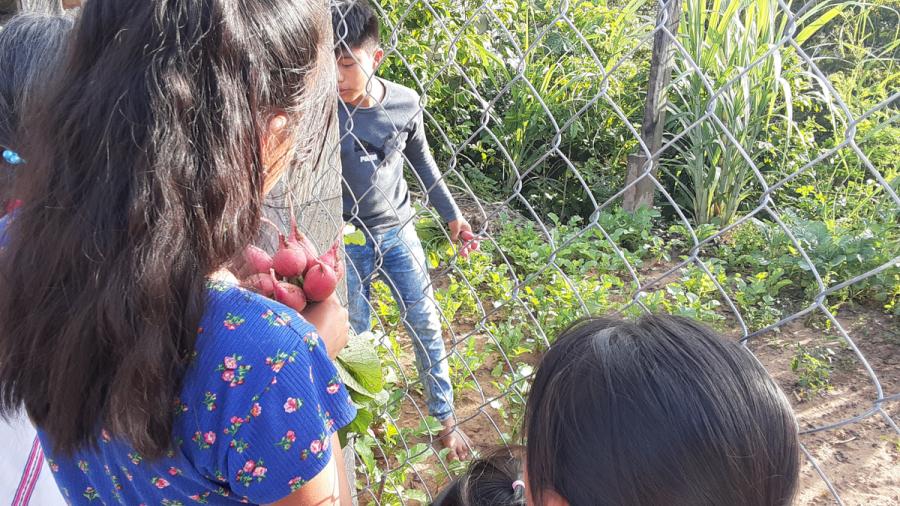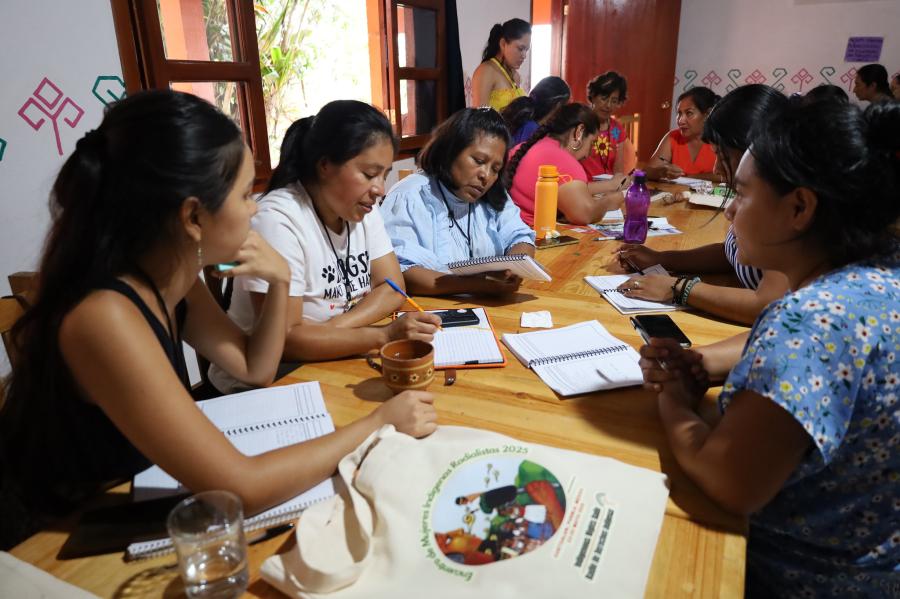
By Verónica Aguilar (Mixtec, CS Staff)
The community of Santa María Cuquila in Ñuu Savi (Mixteca region) in Oaxaca, Mexico, has taken advantage of the generosity of the land to make clay objects ranging from kitchen utensils to houses and delicate objects of Indigenous art. It has also received the generosity of sheep, who provide wool for spinning and weaving, and thus allow for the creation of the huipil that gives these Peoples their identity. Sadly, due to the forces of colonization and discrimination against Indigenous Peoples, the popular use of these objects has declined. This decline has threatened not only the permanence of these artistic and identity expressions in clay and textiles but also the transmission of technical and artistic knowledge from one generation to another. To strengthen the use and creation of clay and wool art in the unique style of this community, the Kimi Ndii Collective carries out teaching and reflection activities with different generations of the community.
The Kimi Ndii Collective is a group of potters and textile artists created in 2011 to strengthen and revitalize the culture of Santa María Cuquila and reinforce the identity, language, art, and worldview of the community. With support from the Keepers of the Earth Fund, in 2023, the collective held a series of backstrap loom workshops where Elders taught children and young people, both men and women, the weaving techniques specific to the community. Backstrap loom weaving consists of assembling a pavilion of threads where one end is tied to a support like a tree or pillar, and the other to the waist of the person weaving. Between the pavilion, rows and rows of other threads are drawn out to close the warp and form figures that are particular to each community, revealing the identity of the weaver.
As part of this phase of the project, pottery and textile workshops were held with different generations. Techniques and ways of artistic expression were explored both individually and collectively; collectively in the form and type of object (bowls, pots for traditional drinks, griddles of different sizes to prepare tortillas), and individually in the creation of ornaments, sometimes in the form of animals or plants, and which seek to innovate within tradition. This was the favorite activity for the children and young people, who were eager to experiment with new figures. One participant said, "What I liked is that they let me do what I wanted to do with clay, not only what my grandparents used, but also what comes from the imagination."
As a complement, an exhibition was organized with the art resulting from the clay and textile workshops. In addition, conferences were organized with schools and the rest of the community on the cultural diversity of Ñuu Savi and the Tu'u Savi language to encourage reflection on its cultural wealth and the need to protect it. Finally, videos were made to disseminate the activities carried out and complement the work already underway at the community museum. The activities were carried out primarily in the native language, Tu'u Savi/Mixtec.
This project supported by Cultural Survival was realized in collaboration with community authorities, the community museum, schools, and the community in general. The community members welcomed the activities. One of the workshop participants commented, "I was teaching [the children] how to work the clay that my father inherited from me, which our ancestors inherited from us. Discovering their interest and their ability to work with clay makes me proud and satisfied. I was able to share my experience with them and what is done in our community of Cuquila, which still stands out for its pottery."
In 2023, the Kimi Ndii Collective Collective received a Keeper of the Earth Fund grant to support their work. KOEF is an Indigenous-led fund within Cultural Survival designed to support the advocacy and community development projects of Indigenous Peoples. Since 2017, KOEF has funded 310 projects in 41 countries through small grants totaling $1,603,307, as well as provided technical assistance benefiting 328 Indigenous Peoples. KOEF provides grassroots Indigenous-led communities, organizations, and traditional governments to support their self-determined development projects based on their Indigenous values. Predicated on the United Nations Declaration on the Rights of Indigenous Peoples, Cultural Survival uses a rights-based approach in our grantmaking strategies to support Indigenous grassroots solutions through the equitable distribution of resources to Indigenous communities.



